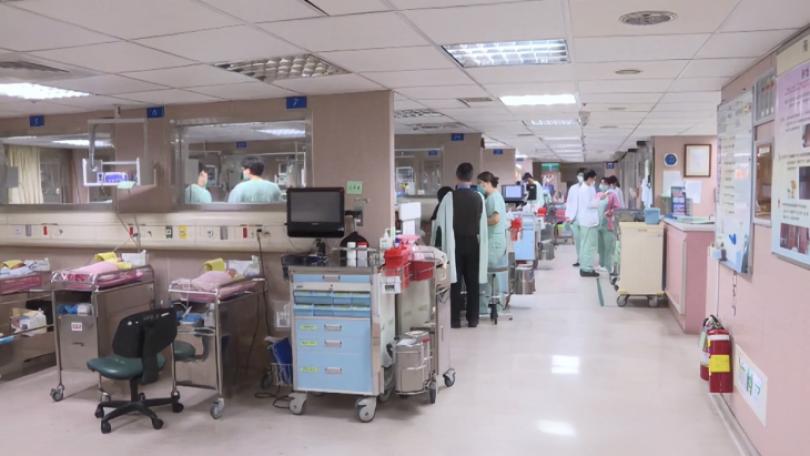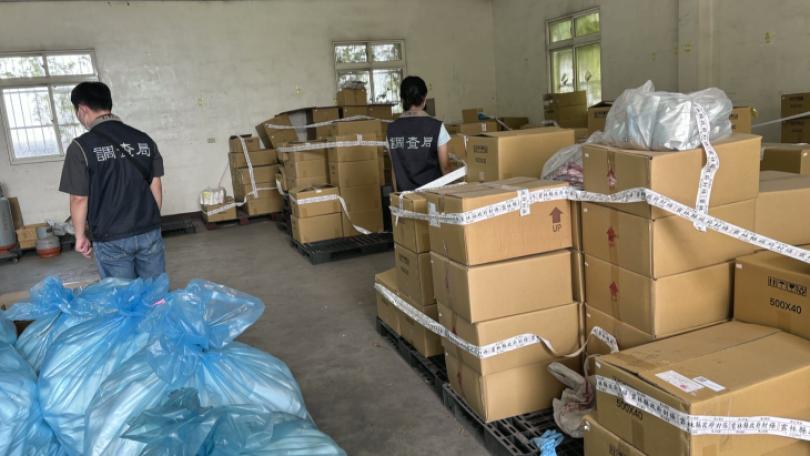6 Retinal Artery Occlusion Reported in 4000 Adverse Side Effect Cases 眼中風6例 醫:是否與疫苗有關待判定

As the massive vaccination is currently underway in Taiwan, reports of suspected adverse reactions have also been added to the official list, with ischaemic strokes being the most common adverse reaction reported. However, doctors say whether it is caused by vaccination is yet to be determined.
Over 9 million doses of the COVID vaccine have been administered to people in Taiwan. There have also been reports of suspected adverse reactions. According to the latest report released by the Central Epidemic Command Center (CECC), 136 cases involve ischaemic stroke, 59 cases involve acute myocardial infarction and 6 involve retinal artery occlusion.
Lu Da-wen, Div. Dir., Ophthalmology Department, Tri-Service General Hospital:”The chances of the person experiencing retinal artery occlusion after vaccination are low if he or she is generally free from the related risk factors. However, if the person has orbital varix or atherosclerosis, it is possible that an atherosclerotic plaque can break off and block the central retinal artery, causing an eye stroke.”
Dr. Lu explained that an eye stroke mainly happens when blood clots caused by bad cholesterol deposits form and block off arteries. COVID-19 vaccines should not be a direct cause of retinal artery occlusion.
The vaccination coverage rate so far in Taiwan is around 36.88 percent, but there are still reports of people getting infected even after getting vaccinated. One hospital in New Taipei City recently reported a cluster infection with over 70 percent of the infected having been vaccinated. Taipei City Hospitals also reported medical personnel testing positive even after vaccination.
Some doctors cited the world's leading multidisciplinary science journal "Nature" on a study conducted in Israel this January through April on breakthrough infections. Extensive testing was done on fully vaccinated healthcare workers at Sheba Medical Center and identified 39 workers who had become infected with COVID-19 despite being fully vaccinated. Antibody measurements are taken and researchers found that that levels of neutralizing antibodies were lower among those who got infected.
Su Yi-Fong, Thoracic Physician, Department of Internal Medicine, Taipei City Hospital:” Testing from the study in Israel showed that the neutralizing antibody levels were low among those that got infected despite vaccination. This serves as a warning sign. People can still get infected even after vaccination, it depends on the antibody level induced by the vaccine for the person. The higher the level of antibody, the better the protection.”
Doctors warn that while the vaccine is effective in preventing serious illness and death, it does not guarantee immunity to COVID-19. People should retain hygiene and COVID protocols to lower the chances of infection and transmission
國內新冠疫苗接種踴躍,目前接種已超過900萬人次,但也陸續傳出不良事件通報,根據指揮中心最新疫苗安全性監測報告顯示,特殊不良事件以腦中風136件最多、急性心肌梗塞59例,眼中風也有6例。
三軍總醫院眼科主任 呂大文:「如果說這個病人假如說本身沒有危險因子的話,他發生(眼中風)的機會也比較低嘛。不過有一些譬如說他有明顯的靜脈曲張,或者他有明顯的血管壁上有一些血栓的斑塊的話,他也可能會因為一些變化斑塊掉下來。」
醫生表示,眼中風主要是血栓在眼中很細的動脈或靜脈中堵住血流,疫苗應非直接原因,而截至目前、國人疫苗人口涵蓋率達36.88%,卻不斷傳出已接種者仍感染的情況,像是新北某醫院日前爆發群聚感染,感染者7成均打過疫苗,而北市聯醫也有醫護過半打過疫苗卻染疫。
有醫師引用國際期刊Nature指出,今年1月至4月以色列進行廣泛病毒檢查測試,發現39名已接種的醫護人員,仍感染SARS-CoV-2,主要原因在於抗體濃度低。
北市聯合醫院胸腔內科醫師 蘇一峰:「一檢驗就發現被感染的這群人,他的抗體濃度在打完之後是比較低的,其實就是給我們一個警訊說,有些人打了疫苗仍然會感染,那抗體是一個很重要的來源,所以打完疫苗如果抗體越高,其實代表應該保護力會越好。」
醫師認為,打疫苗並非免疫,但能降低重症情況,若民眾打了疫苗後、沒有持續做好相關防疫措施,仍會有染疫、以及將病毒傳給他人的風險。









